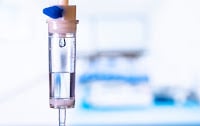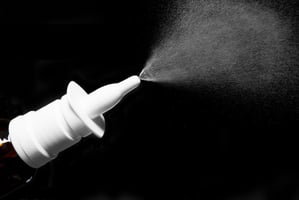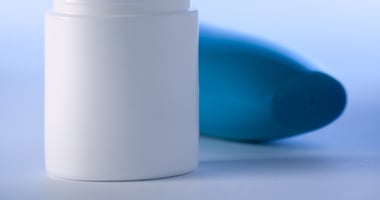Study Compares Efficacy of Ketamine vs. Esketamine in Clinical Setting

Intravenous ketamine may improve patients’ depressive symptoms more rapidly than intranasal esketamine, according to a report in JAMA Psychiatry.
Sina Nikayin, M.D., of Yale University and colleagues reviewed medical data from adults with major depressive disorder who received ketamine or esketamine therapy at the Interventional Psychiatry Service at Yale New Haven Psychiatric Hospital between September 2016 and April 2021. The sample included 129 individuals who received ketamine (0.5 mg/kg over 40 minutes per session) and 81 who received esketamine (56 mg or 84 mg spray per session). The demographic characteristics of the two groups were similar: Patients were predominantly non-Hispanic White with private insurance.
After six treatments administered at least weekly, patients who received ketamine had lower average scores on both the clinician-administered Montgomery Åsberg Depression Rating Scale (MADRS) and Quick Inventory of Depressive Symptomatology–Self-Report (QIDS-SR) compared with patients in the esketamine group. After a full course of treatment (up to eight treatments), QIDS-SR scores remained lower in the ketamine group; there was no statistical difference in MADRS scores between the two groups after eight treatments.
Patients in both groups also had statistically similar rates of treatment response (defined as 50% or greater improvement in MADRS scores), depression remission (MADRS scores of 10 or less), and suicidal ideation (score on MADRS question 10 or QIDS-SR question 12). Overall remission rates were 29.6% for patients taking ketamine and 24.0% for patients taking esketamine. Nikayin and colleagues noted these rates are lower than those reported in other studies, likely because the Yale Interventional Psychiatry Service is a tertiary referral center that treats the most severely ill patients.
“Although both treatments reduce symptoms, these findings signal a potential difference [for ketamine] that could be attributable to many factors, including dosing, delivery mechanism, role of arketamine [chemical mirror image of esketamine], or patient expectations,” the researchers wrote. “A randomized trial is needed to determine the comparative efficacy of these treatments.”
To read more on this topic, see the American Journal of Psychiatry article “Synthesizing the Evidence for Ketamine and Esketamine in Treatment-Resistant Depression: An International Expert Opinion on the Available Evidence and Implementation.”
Don't miss out! To learn about newly posted articles in Psychiatric News, please sign up here.






